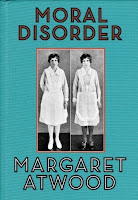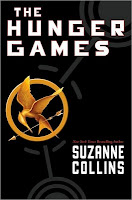The Horse and His Boy is the fifth/third book in C.S. Lewis's, The Chronicles of Narnia. It was a lot of fun, giving us a glimpse into the rule of King Peter, Queen Susan, King Edmund and Queen Lucy, though they aren't the central characters of this tale. We also get to see what life is like in a couple of the countries around Narnia. There was a lot of action in the book, which made it easy to read. I really like the scene where the girls were hiding behind the couch. I thought the four main characters were fantastic. Shasta/Cor, Aravis, Bree and Hwin were all well developed, going through personal changes and growing in this short children's novel. This book was a lot of fun and I look forward to reading the last two books in the series.
That being said, I have two problems with The Horse and His Boy. I'm going to attribute both these issues with the fact that Lewis was writing in a different era.
Why are the Calormen described as "dark-skinned"? From the description of the country and the dress of the people, it seems based on the Arabian or Persian regions. Lewis isn't the only British author of the period to make the villains a dark-skinned people. I'm sure it's just a product of the times, but it still bothers me.
The other issue I have is one I've mentioned before after reading other Narnia books. It has to do with the inequality of the male and female Pevensie siblings. Prince Corin says that Susan never rides to war, essentially because she’s a “lady”. Then it is also stated that she is an excellent archer. Is that to somehow make the previous statement okay? Then Corin says that Queen Lucy is riding to war with King Edmund because she’s “as good as a man, or at least a boy.” What does that even mean? Is it just differentiating the characters of Lucy and Susan or is this saying that finding a woman who is as good as a man is a rare thing? It’s one of the changes I liked about the movies of the other Narnia books. They made the girls equal to the boys; they fight in battles and have equal say in what happens.
I understand why Lewis writes these things. I don’t know that everyone even notices them when they read the Narnia books. They are so minor compared to the overall story, that I would never discourage anyone from reading these books. I’ll even let my children read the books one day, but I might either skip a few sentences, if I’m reading it to them, or explain to them that C.S. Lewis was writing in a different time.
I hate to end my comments on The Horse and His Boy on such a negative note. It was a good book, filled with good stuff; it just also had a few troublesome sentences. I thought it could be a stand-alone book; you don’t need to have read the other Narnia books to enjoy this one. I liked Shasta running to Archenland. I loved how Hwin grew to be stronger and more confident. I liked how Bree and Aravis both learned more about themselves. I liked the first time the boys meet. I thought the end was lovely. I loved Aslan.
.jpg)

.jpg)












